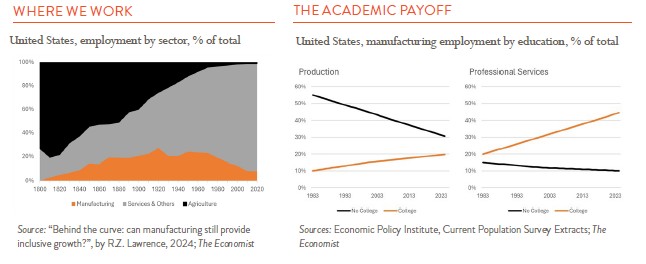The idea that we can create machines that rival what we do as humans is scary stuff. We are not discussing factory robots which do repetitive things, day after day without ever getting tired. We are talking about machines which simulate human intelligence, machines which can actually learn, reason and problem solve. And then you have the next level of AI, Artificial General Intelligence (AGI), where machines are the equal of humans. And let’s not even get into Artificial Superintelligence (ASI), where machines might be capable of surpassing humans!
The AI debate involves both philosophical and practical issues. On the philosophical level, you have those who see a future utopia, arguing that AI will be able to solve difficult human problems. On the everyday level, you have those who worry that if AI is not successfully controlled, machines could destroy everything.
On a practical level, everyone wants to know which jobs are in jeopardy from AI, and when the losses will occur. Unfortunately, it is still too early to tell. It is important to remember, however, when computers first came along, the idea was that productivity would soar, and far fewer people would be needed to do all the work. It is true that computers have changed the job market (and the skill sets involved), but the employment market has adjusted, and the overall number of jobs has continued to grow. The same may happen with AI. The job market will change but total employment will increase.
It is unclear in Mr. Farley’s quote what he means by ‘white collar’ and which jobs he specifically sees as being most vulnerable. It’s fair to say, however, that entry level jobs will probably be the first to go. Data entry jobs, call centers, basic HR functions, bookkeepers, administrative assistants, and heaven forbid, some financial analysts may be on the cutting block.

But at the same time, there will be winners. New technologies always create new jobs. Robotics maintenance and AI development will require many trained people. I have always been an enthusiastic fan of employees who have excellent people skills. Being able to listen well and display emotional intelligence and empathy are human talents that machines will find difficult to replicate. It is hard to imagine that health care professionals (doctors, nurses, dentists, and dental assistants), mental health professionals, and those in highly skilled client-facing jobs will be replaced by machines anytime soon.
In retirement, my wife and I moved from a city condo with municipal water and sewer to a rural home where we learned, often painfully, how sewer and septic systems work, how to ensure you have a reliable and clean source of water, and what is needed to get internet service. In effect, we have learned the value and importance of those in the skilled trades. Carpenters, electricians, solar-panel installers, maintenance and repair technicians, HVAC workers, you name it, these are jobs with decent pay, strong demand, and with the added benefit that you can go anywhere in the country and still be easily employed. Young people should not rule these out. One last area of job opportunities is one you would not expect. I am talking about manufacturing. The Bureau of Labor Statistics estimates there are 400,000 unfilled manufacturing jobs in America today. These jobs have been difficult to fill. One factor is that many workers don’t want to give up the relative comfort of the service sector for the factory floor. Another factor is that manufacturing is not about brute muscle anymore. The factory floor is automated, and sophisticated skills training is important. As a country we are lagging in this area. AI will bring pain to the job market but also many opportunities. All is not lost that is in peril.